My husband and I spent this past weekend in Portland, Oregon, at the World Domination Summit hosted by Chris Guillebeau. As you might imagine, that’s led to some interesting conversations back home (especially when we admit that we went last year, and we’ve decided to take our teenage daughters next summer).
“World Domination? Isn’t that a bit strong?”
Not nearly as strong as the pull to lead a dull, conformist life.
To us, world domination is about overcoming the resistance to lead a remarkable life in a conventional world.
My friend Scott Dinsmore explained it this way, “In a world where most people encourage complacency, we need a sanctuary where people understand why all of us interested in living meaningful lives, do what we do. I go to belong. To be inspired. To find ideas I’d never discover on my own. To find people who hold me to a higher standard.”
That sums up my feelings pretty well. We come from all over the world. We’re from different generations and backgrounds. We’re focused on different types of projects. But we all have the same sparkle in our eyes.
We believe in the power of community, the spirit of adventure, and the importance of service.
(If that resonates with you, you might want to get on the waiting list for 2013. This year’s conference sold out in 7 minutes.)
We also believe in sharing what we’ve learned, so here are my top seven secrets to world domination.
1. Believe.
Fellow Texan Brene Brown reminds us that we belong, especially when we’re willing to be uncool. Our experiences cannot exceed our willingness to be vulnerable, so we must believe enough (in both ourselves and our dreams) to fully engage in life.
2. Give intentionally.
Scott Harrison, founder of charity: water, shattered my assumptions about how non-profits should work. Their combination of radical transparency, cutting-edge branding, and true problem-solving demonstrate that real world needs can be met. Tracing the prevalence of facial tumors in West Africa to their water source, Harrison was determined to focus on eliminating root causes, not treating symptoms. Along the way, he also realized that bringing water to a community also brings education and empowerment to its women and children.
Not all dollars are destined for equal impact. As givers, we must target our finite resources on organizations that can achieve the most impact. And as leaders, we must hold our organizations to the same high standards. (I’ve given my next birthday to charity: water, and I encourage you to do the same. Beyond that, I can’t escape the irony of how much water surrounds my life in Corpus Christi, and I’m determined to do more to help.)
3. Be organized. (It’s a competitive advantage.)
After Harrison showed us what was possible, Scott Belsky showed us how to make it happen. Truly bringing Thomas Edison’s quote to life, Belsky is focused on reminding us that “genius is 1% inspiration, and 99% perspiration.” Teaching that the masterful stewardship of our ideas is more critical than the idea itself, he reiterated that effective project management, a shared community, and real accountability are essential ingredients to making ideas happen. Personally, this presentation likely had the greatest immediate impact on my life, and I’ve already begun reading his book.
4. Tenacity is worth far more than skills or experience.
Sharing that it took eight years for his blog to reach over 100 readers, Chris Brogan demonstrated the true meaning of tenacity – and still does. Reminding us that the opposite of fear is not courage, it is giving up, Brogan delivered my favorite tweetable of the conference, “Fear is part of courage; they’re like mac’n cheese.” Challenging us to strive for our potential, he reiterated that it must be earned and that there are no shortcuts – and that what we do is far more important than what we say.
5. Share your spirit.
Revealing inside perspectives on their journey and their relationship, husband and wife presenters Daniel Noll and Audrey Scott of Uncornered Market illustrated the power of meaningful travel. Simply by venturing to a place, it ceases to be just a dot on a map anymore, becoming “a town with people that you know and love.” Sharing their stories of citizen diplomacy, Daniel and Audrey reminded us that no matter what country we call home, we share the same human spirit. And we can choose to build on that as opposed to focusing on our differences. Personally, I can only say that I want to be them when I grow up. Their delicate combination of strength and grace was absolutely inspiring.
6. Do what Steve Jobs did, not what he said.
Directly challenging the popular notion of “following your passion,” Cal Newport explained why that doesn’t work and what to do instead. Noting that there’s little evidence of people successfully finding their passion in the abstract, Newport suggests instead that “callings” are born from years of experience.
Newport encouraged us to first invest the time in developing a skill that has value to the world. Then, and only then, are we likely to be successful in making the leap, trading that skill for the lifestyle factors that we value most. Newport also noted that this is when the pressure to conform and stay on the conventional track will appear.
7. Pay it forward.
And then there was the little envelopes. This story wouldn’t be complete without sharing the closing message of the conference: pay it forward with abundant generosity.
After noting that last year’s conference lost tens of thousands of dollars, Chris announced that this year had been (thankfully) profitable, without corporate sponsorship or commercialization. Then, he stunned us all by announcing that by combining the profits and the contribution of an anonymous benefactor, he’d gathered $100,000 – and he was sharing it with us.
As we exited the theater, we all received an envelope with a crisp $100 bill and simple set of instructions: Start a project, surprise someone, or do something entirely different. In the next post, I’ll tell you what I did with mine.
——-
Photo Credits: Chris Guillebeau & Armosa Studios
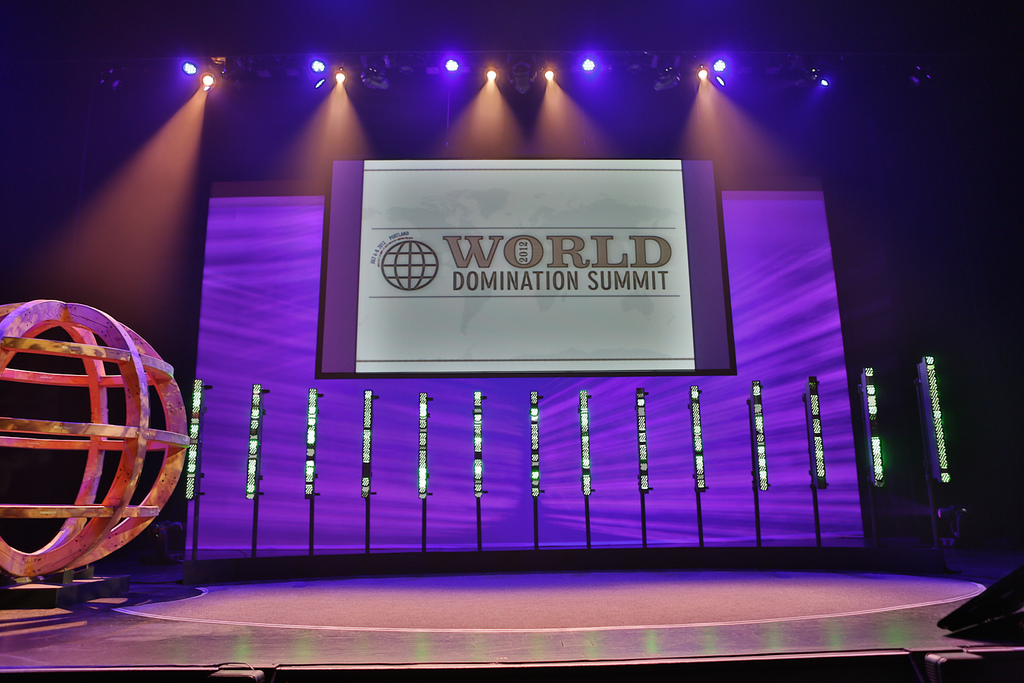
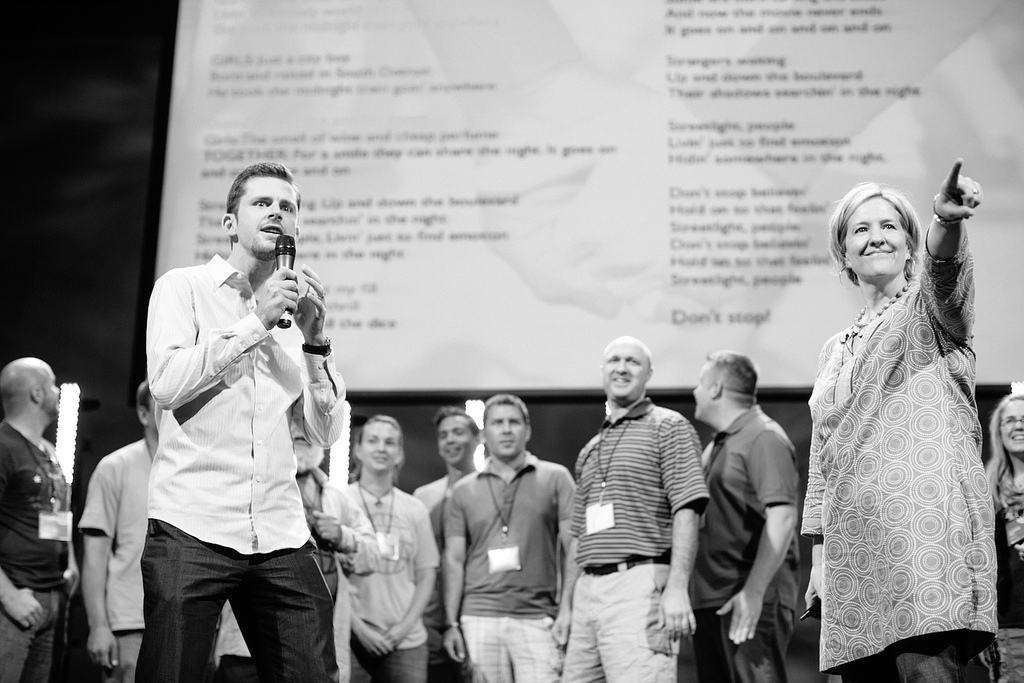
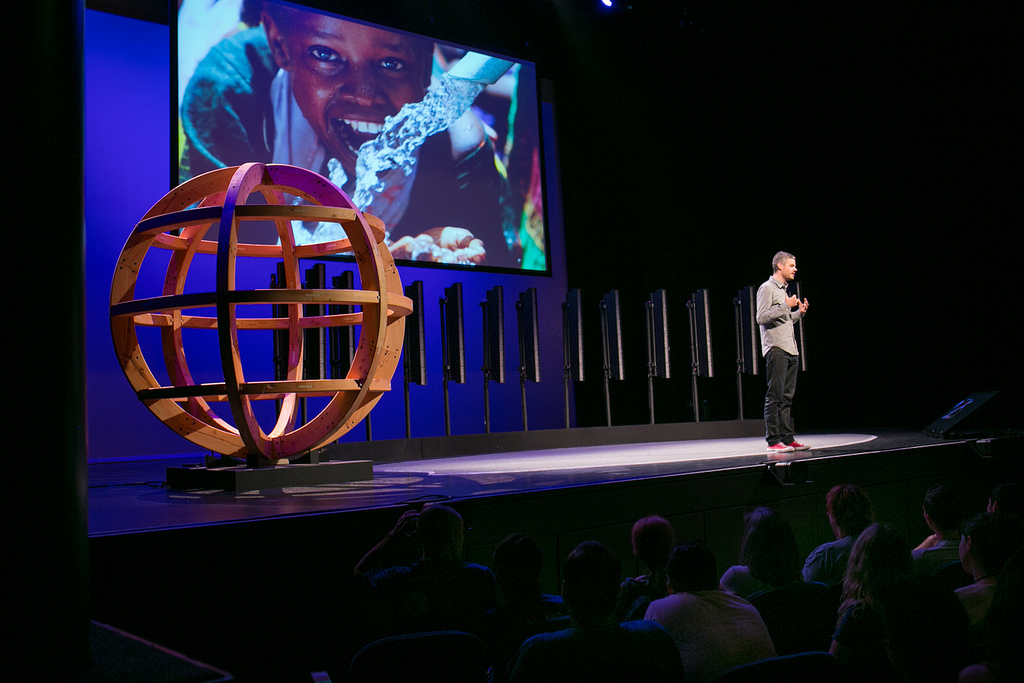
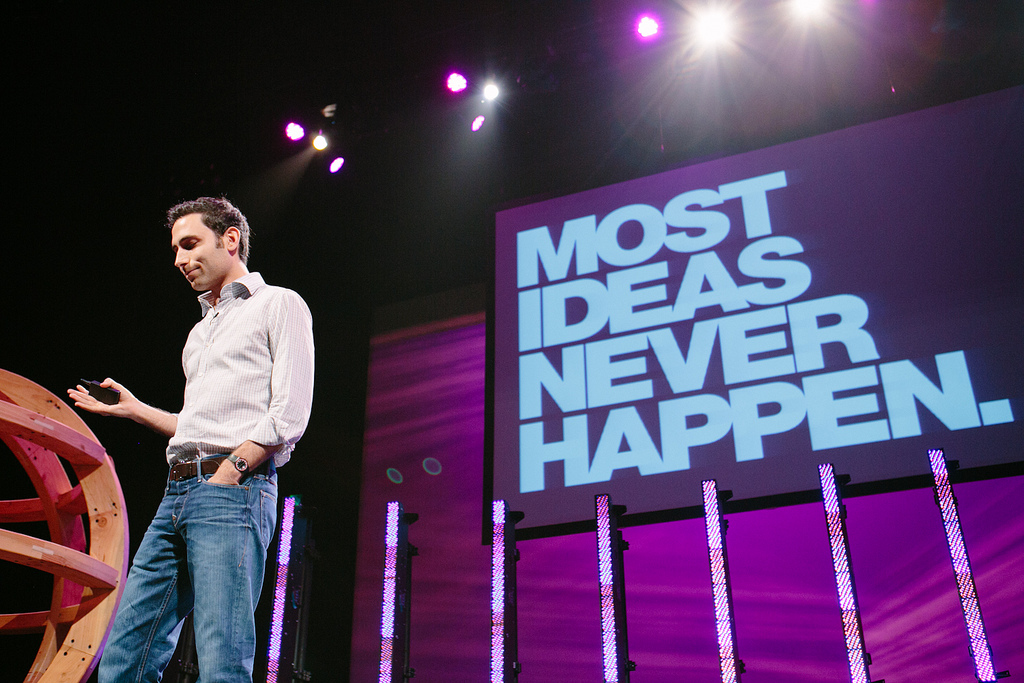
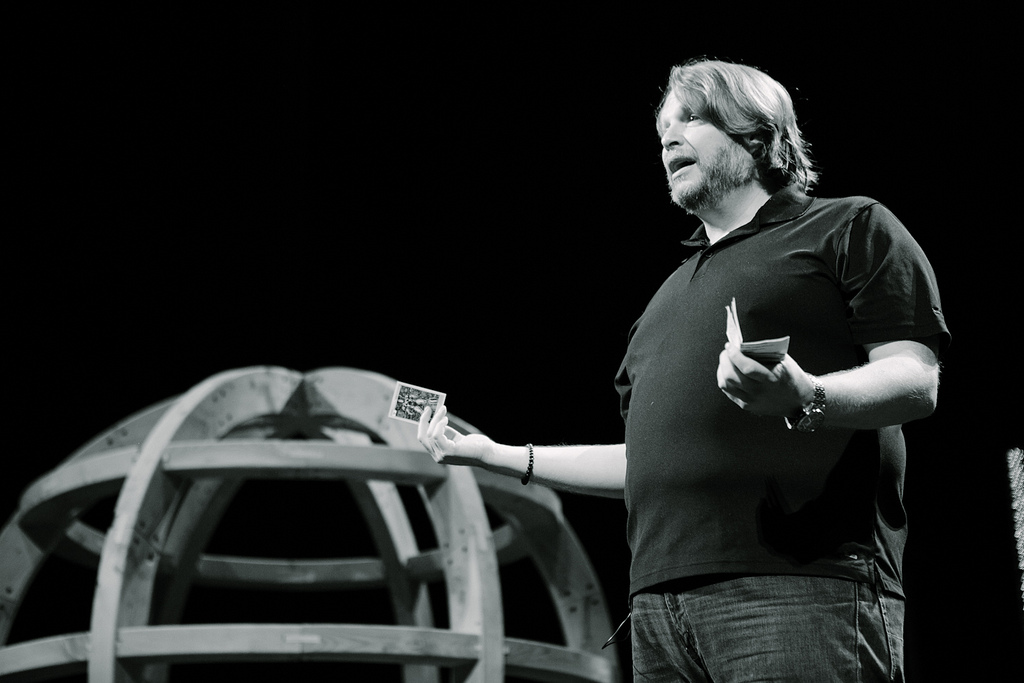
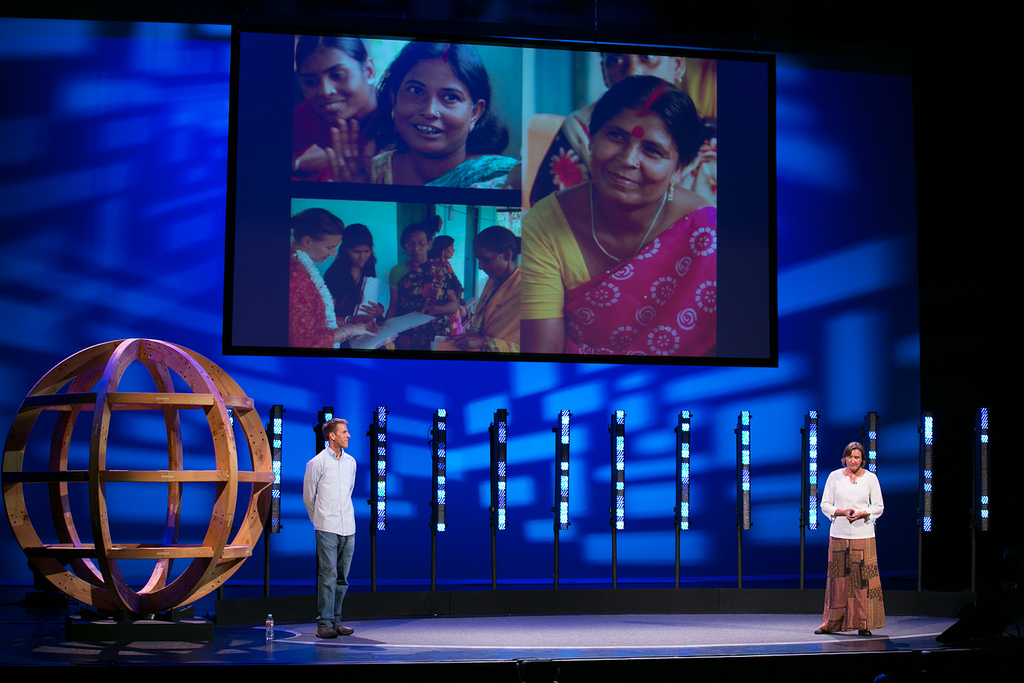


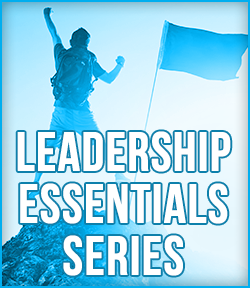






Great recap Kendra! I’m living vicariously through all those who went and share their experience through their blogs/forums. I’m on the waiting list and will definitely be ready to sign up as soon as registration is open!
Glad to see you too intentionally design your life! The more the merrier:)
Thanks Clay! I really appreciate your encouragement.
You should definitely join us next year. I can’t think of three days I’ve spent any better way.
Terrific recap! So goo to see you guys again this year. Let V and me know when you’re in SATX next!
Absolutely! There’s no reason the four of us gotta go 2,000 miles away to catch up. And I want to show Rex your snazzy office. 😉
What a great summary! And, yes, I am meeting up with some friends tonight who will surely ask me to tell them all about it and I’ve been wondering how to summarize WDS in a couple minutes at dinner. Wow. Such an incredible weekend, no?
Looking forward to hearing what you did with your money. (My husband and I are still staring at our envelopes feeling a tremendous responsibility.)
See you next year!
Yep, it definitely makes for interesting dinner conversation. If there’s anyone that didn’t already think I was a little “out there,” the words “world domination” certainly do the trick.
Let’s be sure to meet up next year! It looks like you have quite an adventure of your own brewing.
can’t wait to read your next entry!
Larkie, thanks so much for stopping by!
I’ll have the next article up Monday. 🙂
Great summary Kendra. So glad we happened to sit next to each other. It was great meeting you and I look forward to connecting again next year. Can’t wait to hear what everyone does with their $100. I’m thinking of using it as seed money for my charity: water birthday giveaway.
Linda!
Thanks so much for stopping by. It was great to meet you. I’m looking forward to catching up on the articles we talked about during the breaks. And I’m with you on charity: water. There’s likely not many ways to have a more meaningful impact. I’m brainstorming some ways to support them too, especially with the irony of living in a city surrounded by water.
Dan and I were so touched to read this about our talk – thank you. Maybe we copy and paste this and put it on a testimonial page 🙂 Although, we’re still figuring out growing up ourselves…this is all a process.
But thank you for sharing these seven secrets from WDS. It’s only been a week since Portland, but in reading this I feel like I’m back there and connected with these core messages and lessons.
Absolutely! I’d be honored.
I was particularly touched by the strength of your relationship and the way you two interacted. It was real, and it was special. I was in the third row, and I could feel the respect and appreciation you had for each other. In a world where marriages aren’t always as strong (particularly in the lifestyle design community), I found it very inspiring and refreshing. My husband and I have similar dreams of meaningful travel, and I pray that we can have the same adventures together. (We’ve got two teenage daughters that aren’t fond of traveling, so we have to be creative for the next four years.) We hope to see y’all on the road somewhere someday.
Bummed I couldn’t be there this year, but I’ve already got my ticket for next year!!! See you then! : ]
Awesome! Looking forward to catching up. Will you make it back to the states for SXSW too?
Great review, thanks for sharing! I only discovered this even existed recently but will definitely be making an appearance next year!